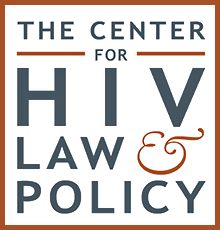Overview
There are no HIV-specific laws criminalising ‘exposure’, non-disclosure, or transmission in New Hampshire. There has been at least one instance of a general criminal law being applied to potential or perceived HIV ‘exposure’, however.
In the 2002 case, a man living with HIV was charged with second degree assault with a deadly weapon and reckless conduct with a deadly weapon after allegedly having unprotected sex without disclosing his status. In legal proceedings a court ruled that a reasonable jury could determine that a person living with HIV who engages in unprotected sex is using their sexual organs as a ‘dangerous weapon’ as it carries a perceived risk of transmission of a disease which could cause ‘serious bodily injury’. It is not clear whether the man was convicted at trial.
Under New Hampshire’s health laws, officials may order examination, treatment, isolation, or quarantine of anyone suspected of having been ‘exposed’ to, or of ‘exposing’ another to, STIs. Violation of these orders can result in misdemeanour conviction, though the penalty available is unclear.
In a 2008 case a man was ordered to pay for HIV testing and write a letter of apology after allegedly spitting on a police officer during an arrest, though his own HIV status is not known.For a detailed analysis of HIV criminalisation in New Hampshire, as well as all other US states, see the Center for HIV Law and Policy report, HIV Criminalisation in the United States: a Sourcebook on State and Federal HIV Criminal Law and Practice.
Laws
New Hampshire Statutes
§ 631:2 Second degree assault
I. A person is guilty of a class B felony if he or she:
(a) Knowingly or recklessly causes serious bodily injury to another; or
(b) Recklessly causes bodily injury to another by means of a deadly weapon, except that if the deadly weapon is a firearm, he or she shall be sentenced in accordance with RSA 651:2, II-g; or
(c) Recklessly causes bodily injury to another under circumstances manifesting extreme indifference to the value of human life; (…)
§ 631:3 Reckless conduct
I. A person is guilty of reckless conduct if he recklessly engages in conduct which places or may place another in danger of serious bodily injury.
II. Reckless conduct is a class B felony if the person uses a deadly weapon as defined in RSA 625:11, V. All other reckless conduct is a misdemeanor.
III. A person convicted of a class B felony offense under this section shall not be subject to the provisions of RSA 651:2, II-g.
Further resources
Not all laws used to prosecute people living with HIV in this state are included on this page. For a comprehensive overview and analysis of HIV-related criminal and similar laws and policies, visit The Center for HIV Law and Policy
